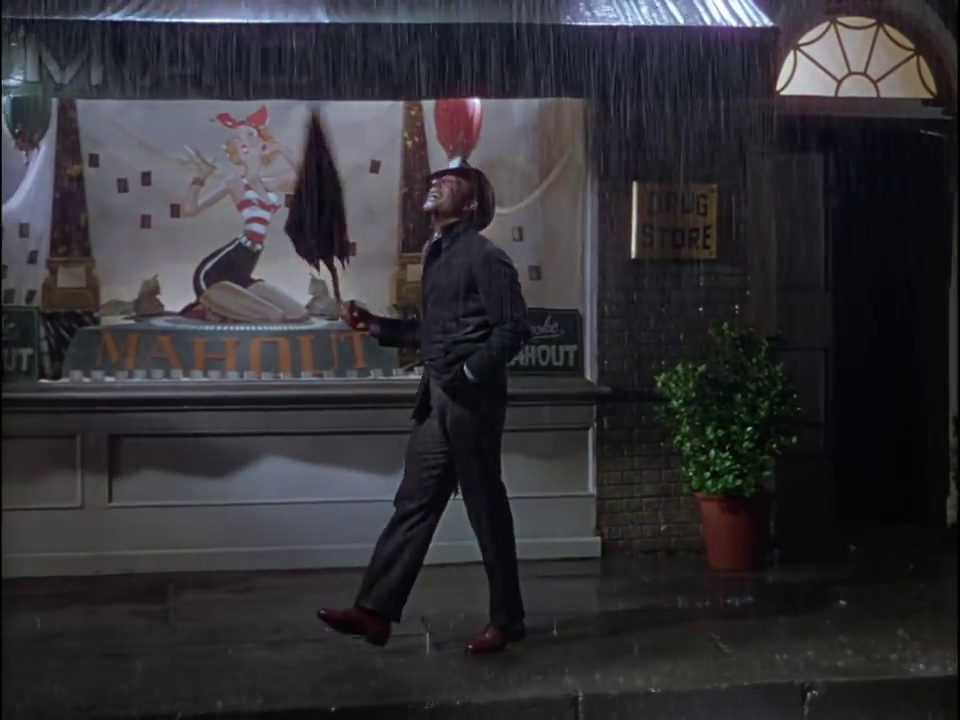Week three at STARTUP, midday. I open email forty-five of eight-seven. I have received the employee handbook from CHIEF OFFICER, who asks I sign and return “EOD.” I skim to the important parts: vacation time, benefits, work from home. Working from home is discouraged, it says, because STARTUP believes in a “healthy balance” between work and personal life. I ping COWORKER because this is funny given the reason ACCOUNTANT quit last week.
Since my employment I can’t ignore Jonathan Crary’s 24/7: Late Capitalism and the Ends of Sleep deriding me from its perch upon my shelf. I’ve further succumbed to the platform economy Crary describes, haunted by interconnectivity and the anxious promise of late-night notifications from CHIEF OFFICER or CEO. Work and play are now apps I switch between with a double-tap, flattening all activities into a lifestyle of chaotic stimuli and reaction. In a performative gesture of generosity every position is salaried at STARTUP meaning endless availability is expected. “Clocking out” is as antiquated as it sounds.
I’m told in a meeting with CHIEF OFFICER that CEO schedules her life in fifteen-minute blocks. He recommends I do the same. It seems cruel to subject time to such harsh disciplinarity, but in practice I realize this has little to do with order. It is more so an aesthetic devotion to the neoliberal imperative of Silicon Valley. A devotion to what Deleuze famously describes as the reduction of the individual to the “dividual,” humans as sites of data to be infinitely parsed and aggregated in the service of capital.[1] Time is subjected to similar logics. Rendering one’s existence as fifteen-minute boxes in a Google Calendar allows endless reorganization and modularity driven by an ethos of target-driven performance. One’s life can be shuffled and prioritized to respond to any event, to hit any target, no moment goes wasted. CEO’s calendar mimics my 24/7 lifestyle, her ceaseless restructuring of the company, and the disruption and reorganization endemic to Silicon Valley.
“Time is money,” says ENGINEER in a tense meeting with CEO. She retorts: “It doesn’t matter how long something takes, it matters that we get it right.” Such draconian claims actuate the chaos of STARTUP, wherein delineations of departments blur across the open floor plan. Max Weber described the aphorism “time is money” as quintessentially capitalist, a product of the Protestant work ethic in which capital becomes God.[2] This held true through the Fordist economy when linearity structured the workplace. When the factory worker relied on a fixed amount of hours and understood themselves as a link in the chain, as situated in a hierarchy of power. Indeed, an invigorating mantra this makes if one’s time is finite, if the product is material. But when the worker is always working and the product is a platform, time and money implode, proliferating outwards into every facet of one’s life. At STARTUP, existing is money.
Deleuze elucidates this transformation as moving from “minted money” to “floating rates of exchange,” an apt metaphor for the delirious virtuality of the 24/7 society.[3] Efficiency is no longer quantifiable, numerically tracked, or defined by quota. Rather, its is designated through nebulous and wavering targets, either bureaucratically issued or dictated by the mercurial whims of CEO. In Silicon Valley, one no longer climbs the proverbial ladder, but shoots Nerf darts at ever-shifting targets that proliferate and dissipate with the transmogrification of the company, of the culture, of capitalism. Linearity is passé, hierarchy exists only to the extent that it serves capital, and time is flattened out into calendar appointments, tracked, shuffled, and reorganized once again.
Despite such extensive tracking of time, I somehow feel increasingly unmoored, my Google Calendar resembling a game of Tetris more than a tool of measurement. Ironically, with so much attention paid to my temporal locus, time loses relevance as a metric. Frederic Jameson prophesized this predicament, this “crisis of historicity” and its effect on the individual, decades prior.[4] Now that I’ve finagled myself to the heart of platform capitalism, I truly grasp, on a personal level, what Jameson meant. Planning, the process of prioritizing events to ensure an eventual outcome, has dissipated in favor of a reactive present. I no longer study the past to project myself into the future, but oscillate between responding to perpetual calendar notifications and swapping one event for another. Mired in the present, all aspirations are neutralized. One cannot leave STARTUP because STARTUP infiltrates every aspect of one’s life and nullifies forward-looking ideations. The ability to fashion a narrative, to make sense of my actions and the world around me, dissolves into a perpetual present.
[1] Gilles Deleuze, “Postscript on the Societies of Control,” October 59, (1992).
[2] Max Weber, The Protestant Ethic and the Spirit of Capitalism (New York: Dover Publications, 2003).
[3] Deleuze, “Postscript on the Societies of Control,” 5.
[4] Frederic Jameson, Postmodernism, or, The cultural logic of late capitalism, (Durham: Duke University Press, 1991).
“We go to the cool high school, everyone’s queer and really creative. It’s super cute.”
“So cute. But RIVAL HIGH SCHOOL is high key trash. They’re all like cis white dudes who are obsessed with sports.”
“They sound lame,” I earnestly respond.
“Sooo lame.”
“Totally.”
Covering the front desk of STARTUP, I observe my colleague’s daughters as they induct me into their world through affectless vocal fry. Draped in vintage accoutrements replete with paint stains, they boast of studying art. Clearly drawing from the same cultural cache as myself, they try to impress despite my laconic responses. Sleep deprived and overworked, the conversation assumes a dreamlike quality from my vantage point, like a millennial reissue of Clueless set in San Francisco.
“So FYI, I’m bisexual and she’s gay, we both use she/her pronouns. We’re v excited to be here.
“Yeah, STARTUP is so lit, it’s like… my fav place. So, what are you?”
Struck with existential dread, I am at a loss for words, but eventually find the right response: “I’m gay, I guess. He/his.”
“It’s chill to be indeterminate, sexuality is like… a spectrum, you know? Do you mind if I vape in here?”
I concede as they proceed to discuss their friend who keeps changing their pronouns and I ponder the degree to which queerness has become a valued commodity amongst coastal elites. Indeed, the ease with which I navigate this hellscape as a young gay man is astounding (and not taken for granted). Here the aphorism “it gets better” appears obsolete and, like much else in the Bay Area, rings of self-delusion. Statistics on mental health, incarceration, and upward mobility tell us it does not get better, and for those ensconced in the liberal bubble espousing the opposite: being gay is already better.
“Capital ‘L’ Liberalism” is how Lisa Duggan denotes the West’s governing ideology since the seventeenth century.[1] The individual and their liberty is the core tenet of Liberalism, so that free markets with minimal government intervention grant personal autonomy. The right to sell one’s labor, to buy and own things in the marketplace, have thus become the cornerstone of Western capitalism and, by extension, identity. Naturally, when the right to choose (i.e. to purchase) is the paragon of agency, identity politics are reduced to the issue of market freedom. Alexandra Chasin’s aptly titled Selling Out proves as much, charting the trajectory of gay and lesbian movements alongside the expansion of neoliberalism. Chasin illustrates the contradiction inherent to movements lobbying the state for equal rights, for a state that leaves regulatory power to the market does not protect marginalized groups from the economic inequality the market engenders.[2] Consequently, the success of bourgeois gay and lesbian movements comes at the expense of economic realities (LGBT homelessness, sex work, workplace discrimination). A red flag that “LGBT” might be more useful to marketing campaigns than political ones. Jasbir Puar goes one step further. Her term “homonationalism” describes how a sanitized, white, heteronormative, gay and lesbian movement is a calling card of U.S. exceptionalism, obscuring racial inequalities and belying class differences.[3]
Recent years have seen this identitarian impulse intensify. A seemingly endless drop-down menu of marginalized identifications now saturate the media. Influencers and streaming algorithms peddle narratives of oppression, self-care, and individual triumph. Coworkers query your pronouns if your email signature doesn’t beat them to the punch. Indeed, identity is now the premiere site of labor and consumption. Chasin describes this shift as a transition from a production-based society where one identifies with their profession, to a consumer-based one where identity is purchased through material goods.[4] But what do we make of a culture where material objects are increasingly supplanted by digital ones?
Moral piety and capitulation to an ascetic political correctness now define the left’s position in online culture wars. Such attributes are a currency amongst privileged classes and increasingly permeate mainstream platforms. Mark Fisher eruditely captures this inclination in his essay “Exiting the Vampire Castle,” demonstrating the careerist incentive to accuse, label, and #cancel peers on the basis of morality.[5] In a digitized landscape where market logics define every interaction and all subjects are in competition, expressing moral superiority delineates the accuser from the barbarous masses. Angela Nagle describes this impulse as a need to create scarcity in a social economy where virtue is the currency that can make or break a career.[6] God is dead and the religion of pure identity politics thrives in an economy predicated on the construction and consumption of identity. This paradigm is replicated on both sides of the aisle. Whether your oppressor is the patriarchy or man-hating feminists, whether your social economy is rooted in morality or transgression, it is imperative you appear superior.
Thus, in much of the Bay Area, a marginalized identity is the hottest accessory. Oppression is now the little black dress of identifications. You can flex it on college applications and in job interviews, gain entry to parties and events, and elide any and all criticism as an act of persecution. Indeed, for Silicon Valley gays, the sort with flexible hours and “content” or “product” in their job title, who brunch and carry Fjällräven backpacks, it pays to be gay. Even so, patriarchal transference of power persists in these circles, as the whiteness of the Bay can be seen from space. So while diversity may get you a foot in the glass door, once you’re inside the old hierarchies apply. Moreover, not all wealthy LGBTQIA folx are created equal. My narcissism holds dear that I am not a “basic gay,” for example, that I shop at vintage stores instead of H&M, that I live on Haight Street instead of Castro. My lineage is that of Kenneth Anger and Michel Foucault, I tell myself, not Neil Patrick Harris and Modern Family. Deceiving my ego into believing I am not part of the herd, that I am “special,” soothes the disillusionment of living in contradiction to the politics I avow. Sure, I stand out in the bourgeois circuits of Silicon Valley through which I traipse, but this only engenders the careerism and social climbing I decry, negating any delusions of alteriority. For to be the most individual individual under Liberalism is a high honor.
[1] Lisa Duggan, The Twilight of Equality?: Neoliberalism, Cultural Politics, and the Attack on Democracy (Boston: Beacon Press, 2003), XXI.
[2] Alexandra Chasin, Selling Out: The Gay and Lesbian Movement Goes to Market (New York: Palgrave, 2000), 1-29.
[3] Jasbir K. Puar, Terrorist Assemblages: Homonationalism in Queer Times (Durham: Duke University Press, 2001).
[4] Chasin, Selling Out, 12.
[5] Mark Fisher, “Exiting the Vampire Castle,” (opendemocracy.net, 2013).
[6] Angela Nagle, Kill All Normies: Online Culture Wars From 4Chan and Tumblr to Trump and the Alt-Right (London: Zero Books, 2017), 68-85.
A native of Las Vegas, I am appreciably au fait when it comes to narcissistic excess and abjection. One might even say an expert in ennui. Lo my surprise in discovering San Francisco to be an adroit polis of merrymaking, especially when it comes to Halloween. Halloweekend in the Bay is a scintillating theatre of consumption, an opiate utopia, rivaled only by Pride Weekend, 4/20, and, recently, the Women’s March. Aging millennials descend upon the streets in lurid costume, lubricated with plump bank accounts and a cornucopia of drugs.
I follow suit, stopping at a corner store for cigarettes before attending a house party. I walk to the back of the line, stand behind two skimpily dressed high schoolgirls, and eavesdrop their chatter. Standard talk of pep rallies and house parties ensue, interspersed with the occasional Snapchat selfie. Eventually, this gives way to a sobering discussion of professionalism. GIRL 1 is under familial stress to enroll in AP Calculus. She wonders if passing with a low score is more detrimental than enrolling in regular calculus. At least, GIRL 2 relays, Stanford weighs GPA over coursework, but Ivy’s do consider transcripts. Learning a third language might be an alternative. Maybe coding? GIRL 2 wants to give up the clarinet but worries of a threadbare college application. GIRL 1 ponders the risk of pursuing a fine arts degree over a STEM degree. They contemplate if a gap year would provide clarity. Still, it should inform an application essay. A Euro-trip or successful Etsy shop might render time-off worthwhile. Fraught with genuine concern, the discussion continues until they reach the register.
Such tales are commonplace in these parts, where enrollment in private school is a blood sport and acceptance into a prestige college is a matter of bloodline and bribery. These anxieties are not new but appear magnified in Generation Z, especially in the Bay Area. Two buzz worthy N-words come to mind having witnessed this teenage display: narcissism and neoliberalism.
Christopher Lasch’s treatise on the former paints any evocation of the word with a reactionary glow. Indeed, romantic reveries of the past fall flat for anyone with a less than ideal identity construction. Nevertheless, his diagnosis of pervasive narcissism metastasizing at the close of the twentieth century profoundly resonates today. A vulgar reading of Freud and Lasch understands a healthy balance between self-love and love-for-others to be disturbed when the latter cannot be fully expressed.[1] Enter the narcissist: frustrated by an inability to love, they locate the problem as themselves. “Why don’t people like me,” they ask, desperately searching for an identity to win the approval of others. A dogged and often commercial investment in self inevitably comes at the expense of community, further siloing the narcissist in their own house of mirrors. Subsequent self-loathing and doubt transmute into misanthropic rage, rage that people don’t understand me, rage at the state of global politics, rage that COWORKER took the last cookie. A charming and agreeable façade, crafted for others’ approval, masks the seething anger, shame, and vacuity of the narcissist.
The West’s collective pathology is a direct result of external socio-economic structures that have, for lack of a better word, castrated our ability to forge meaningful relationships. In his lectures under The Birth of Biopolitics, Foucault understands the primary impetus of neoliberalism to be the extension of market logics into the social body. Thus we find a fixation with investing in “human capital,” in accruing social and economic standing through innate and learned characteristics.[2] Whether raising a child, regulating institutions, or navigating coitus, the frameworks of bureaucracy, use value, and contractual agreement are employed. When every actor is in competition and every interaction an exchange, narcissism is the only way to survive. Thus, grandiose optics built to manipulate others describes advertising as much as the 21st Century Westerner.
The anxiety to maximize one’s potential economic value is inescapable, born from a realistic material impetus and propagated via popular media. Take, for instance, the Kardashian Dynasty. Self-validating rhetoric of hard-working businesswomen abounds, though upward mobility and middle-class jobs dissipate at a pace equivocal to the aforementioned family’s rate of surgical enhancements. To transform oneself into the ideal capitalist subject requires a brutal level of discipline in accruing capital, developing skills, and securing pedigrees. It is no wonder the general populace fails to form meaningful bonds, preferring instead the dopamine hit of an Instagram like or the misanthropic savagery of a comment war. The concerns of the girls in the corner store, while born from a privileged vantage point, reflect a precarity that’s universal, though unevenly afflicted.
Numb to the chaos and cutthroat careerism of postmodern life, the narcissist most desires to feel, to commune, and this is no more evident than on Hallows’ Eve. Leaving the gas station girls behind, I arrive at the house party. Everyone adores everyone’s costume; compliments distract from the judgment and jealousy behind dilated eyes. Substances are swallowed to quell the nervous ego and raucous acts are performed for social media, legitimizing the event as a good time. As the night wanes, some engage in laissez-faire sexual relations, while others swipe through Grindr, Tindr, Bumble, or Blendr hoping for the same. We all wake up the next day feeling the same as any other day, despite the hangover.
Halloweekend in the Bay is not the reverie of Bakhtin’s carnival, joyous and debaucherous, relishing in transgression and challenging the status quo.[3] Nor is it the pressure valve Umberto Eco theorizes, venting repressed ideations to reaffirm the boundaries of civil society.[4] Such endless partying is the manifestation of a young bourgeois careerist class desperate for human connection. Having chosen jobs and follower-count over community, we feebly tap at screens lusting for likes, waiting to fall in love. Our start-ups and corporate platforms boast of “town halls” and “team outings” as though colleagues are a substitute for community, as though digital networks aren’t exacerbating our alienation.
This essay itself is a narcissistic act, born in solitude and tinged with an egoistic rage against the social order. Character descriptions are laced with misanthropy, implicating my own superiority beneath the veneer of satire. Trademark millennial self-deprecation and pseudo-self-awareness mask the insecurity and anger buttressing my diagnosis of generational narcissism. Sown at birth through relentless competition and investment in human capital, this crippling inferiority complex, this shame and self-loathing, afflicts the entirety of my generation and the next, producing an army of narcissists.
[1] Christopher Lasch, The Culture of Narcissism: American Life in an Age of Diminishing Expectations (New York: Norton and Company, Inc., 1979).
Sigmund Freud, Freud’s “On narcissism–an introduction,” ed. Joseph Sandler, Ethel Spector Person, Peter Fonagy (New Haven: Yale University Press, 1991).
[2] Michel Foucault, The Birth of Biopolitics: Lectures at the Collège de France, 1978-1979 (New York City: Picador, 2008), 239-267.
[3] Mikhail Mikhaĭlovich Bakhtin, Jay Wright, Michael Holquist, The Dialogic Imagination: Four Essays (Austin: The University of Texas Press, 1981).
[4] Umberto Eco, V.V. Ivanov, Monica Rector, Carnival! (Approaches to Semiotics) (New York: Mouton Publishers, 1984).
Month two at STARTUP and CHIEF OFFICER is demoted off my team. MANAGER is on vacation, unaware of her de facto promotion. “Restructures” are routine at STARTUP, I come to learn. Inventory the staff, catalog their duties, and purge whomever CEO dislikes. As a result, workloads are redistributed and titles change on a near-monthly basis. This virtual reshuffle is spatially realized as the pods of the open-air office are reconfigured yet again. Adrift in a haze of malaise, I ponder when my time will come.
I watch Jacques Tati’s Playtime (1967), assuming a satire of corporate existence will be soothing. With imagery of monolithic glass structures and a color palette of drab greys, the film lambasts the rigorous conformity of the 50s era megacorp. Lemmings wait in line or scurry to and fro. They peck at typewriters and push buttons on arcane electronics. Waiting rooms resemble conference rooms resemble cubicles resemble apartments. The repression of individuality occasionally erupts in humorous chaos only to be contained once more. I find myself unable to relate, even envious of the world in the film. How does it feel to know one’s place in the superstructure? Following the ousting of CHIEF OFFICER, MANAGER’S title changes several times, our workloads mutate, and a colleague is absorbed into the team. The office moves into a new space two floors down and seating arrangements are shuffled thrice.
Frederic Jameson elucidates the difference between Playtime and STARTUP in his famous essay on postmodernism.[1] The high modernist world of the film is structured according to time. Our postmodern predicament is one concerned with space. The lemmings exist according to a stiff temporal logic: clock-in, perform ordained duties, take the requisite breaks, clock-out, experience “free time” at home. Rinse and repeat. This paradigm dissipates for the technocrat who can work from home. Unlimited vacation hours and push notifications render time moot and spatial logics paramount. Likewise for the precarious gig laborer whose personal spaces are monetized through apps like Uber, Airbnb, and Depop. Every space is a workspace. Jameson describes this experience as being submerged in an environment without the distance necessary to gain perspective.[2] To survive one must always be doing, reacting. Activity is paramount to success.
Such dynamics define existence at STARTUP. The new office space boasts a cafe and lounge, hubs of relaxation traditionally separate from work. CEO relentlessly gives tours to other company heads while trying to secure a magazine spread. Boasting of “collaboration” and “transparency,” she hits every note in the Silicon Valley playbook. The effect is meant to be that of community, a self-sufficient world unto its own. Work feels like home and home feels like work. However, the reality of STARTUP brings the authenticity of this ethos into question. Taking a cue from Mark Zuckerberg, CEO sits at a regular desk in the center of the office, erecting a near-literal panopticon. Staff retreat to massive headphones to avoid noise pollution and conversations move to G-Chat (text message for anything incriminating). Excessive workloads and surveillance cameras deter use of the lounge and cafe. It becomes apparent the open-air office, replete with exposed brick and minimalist Scandinavian design, is primarily a lure for venture capitalists.
Jameson uses the metaphor of cyberspace to ascertain postmodern spatial logics. At the time of his writing (19XX), he describes the digital network as the only representation that somewhat grasps the incomprehensible totality of global late-stage capitalism. Other theorists have expounded on this premise. In The Exploit, Alexander Galloway and Eugene Thacker understand the network as the dominant paradigm of contemporary life, subsuming politics, technology, media, etc. Mesh-like and ever-expanding, networks supplant the top-down hierarchy of modernism as a malleable form of social control. Galloway and Thacker describe network phenomena as simultaneously biological and informatic, governed by liberal protocols of autonomy, consciousness, desire, and feeling.[3] It is a totalizing, opt-in only, ever-expanding paradigm in which everyone is incorporated to varying degrees. Time is meaningless because there is no rest, whereas space, from internalized bodily spaces to the borders of national entities, is key to expanding the reach of capital.
The open-air office of STARTUP does not foster the camaraderie and collaboration it avows, but facilitates further entanglement into networks of control. A culture of fear drives staff into digital communications, some of which are tracked by STARTUP and the rest by larger corporations. Free time evaporates and habits of consumption alleviate the pressure of ever-rising business objectives. Online shopping, drinking, pornography, social media, whatever it takes. Staff form trauma bonds that dissipate with every lay-off. Exactly one year since MANAGER became Chief Officer, it is clear a restructure is impending. In anticipation, MANAGER transitions to a different startup. TEAMMATE is laid off and I begin applying to other media jobs. We transition companies and although our business cards change, our quotidian experience is largely the same. The restructures, the minimalist open-air offices, the abuses of power, they all remain. The only constant is instability. Whether consciously or subconsciously we understand our entanglement in the network and the futility of escape, so we keep on playing.
[1] Frederic Jameson, Postmodernism, or, The cultural logic of late capitalism, (Durham: Duke University Press, 1991).
[2] Jameson, Postmodernism, or, The cultural logic of late capitalism, 83.
[3] Alexander R. Galloway and Eugene Thacker, The Exploit: A Theory of Networks, (Minneapolis: University of Minnesota Press, 2007), 26, 70.







